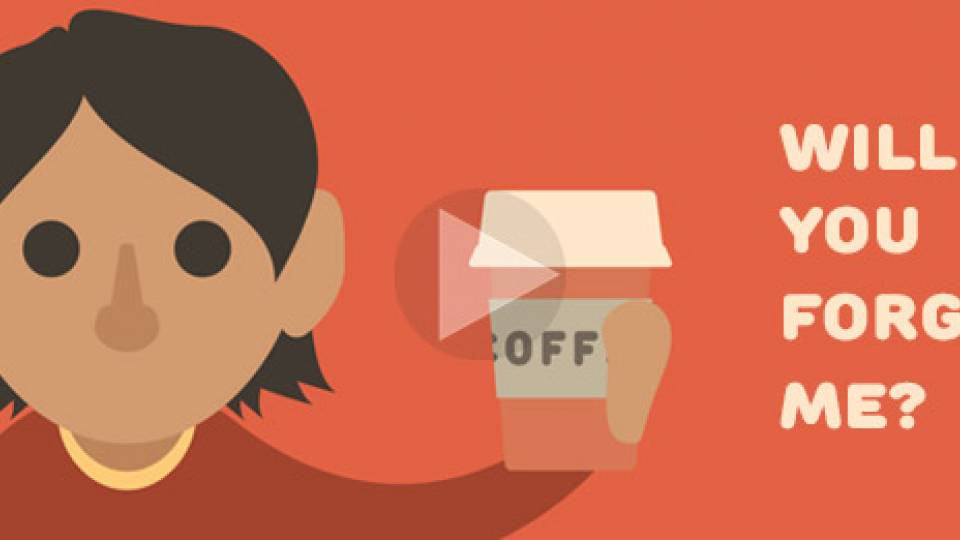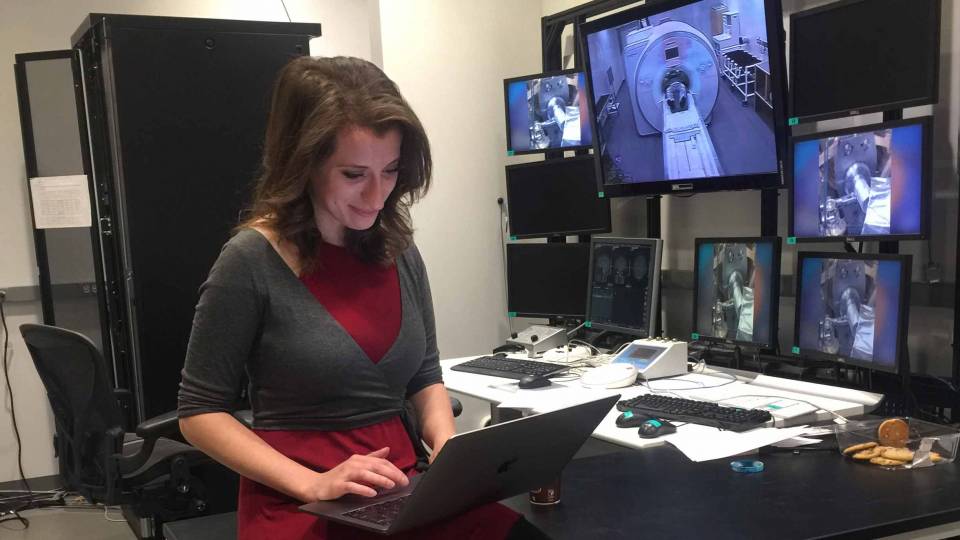Your attention, please.
People make mistakes every day because they lose focus. Maybe your car drifts across the center line or an error slips into a report at work.
In an article published online Monday by the journal Nature Neuroscience, researchers at Princeton University describe a study that shows training people using real-time feedback from their own brain activity can reduce the frequency of attention lapses and improve their ability to sustain attention.
"Even though we all make a lot of attentional errors and we have difficulty focusing, there's some potential for those abilities to improve," said Nicholas Turk-Browne, an associate professor of psychology at Princeton and one of the researchers.
Turk-Browne said the research offers basic science insights into how attention works in the brain and how attention-related mental processes can change. It also opens the door, he said, to potential practical applications for training in occupational settings, such as truck driving and baggage screening, where sustained attention is required. In addition, the research could prove helpful in treatment of disorders such as attention deficit hyperactivity disorder and aspects of depression that are related to attention.
"The basic science is really why we did the study, and we learned a lot about behavior and the brain," Turk-Browne said. "I think some of the most interesting applications may actually be in the everyday mundane experiences we all have of not being able to stay focused on what we're trying to do."
In the study, the researchers used real-time functional magnetic resonance imaging (rtfMRI) to monitor the brain activity of participants as they completed a task that involved looking at an image that blended a face and a scene.
To complete the task, the study participants needed to focus their attention on either the face or the scene part of the image. When the rtfMRI information indicated that their attention was wandering away from that part of the image, the researchers made the task more difficult by fading out that part of the blended image.
"If you're supposed to be focusing on the face and get distracted, we detect that in your brain before it causes an error on the task," Turk-Browne said. "We alert the participant that they're in the wrong state by making the task harder so they really have to buckle down. If we see they're starting to focus on the right kind of things again, we make the task easier."
"By giving them access to their own brain states, we're giving them information they wouldn't otherwise have until they made a mistake," he said.
After one training session, participants who received feedback on their brain activity outperformed a control group, who had been trained using brain feedback from another person.
"These findings suggest that individually tailored neurofeedback can be an effective approach for helping individuals to avoid lapses of attention and take full advantage of their existing ability to engage in goal-driven selection of relevant information," wrote Edward Awh and Edward Vogel, professors in the Department of Psychology and Institute of Neuroscience at the University of Oregon, in a commentary about the research in Nature Neuroscience.
The Princeton researchers described their work in an article titled "Closed-Loop Training of Attention with Real-Time Brain Imaging." The other authors of the work are Megan deBettencourt, a Ph.D. candidate in the Princeton Neuroscience Institute whose dissertation focuses on the research; Jonathan Cohen, the Robert Bendheim and Lynn Bendheim Thoman Professor in Neuroscience and a professor of psychology and the Princeton Neuroscience Institute ; Ray Lee, technical director, neuroimaging facility at the Princeton Neuroscience Institute; and Kenneth Norman, a professor of psychology and the Princeton Neuroscience Institute.
The work was supported by U.S. National Institutes of Health grant R01EY021755, U.S. National Science Foundation (NSF) grant BCS1229597, NSF fellowship DGE1148900 and the John Templeton Foundation.



